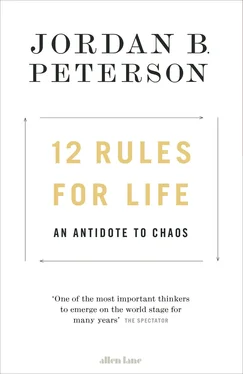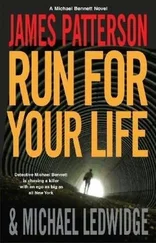If you’re female, you have access to many high-quality suitors: tall, strong and symmetrical; creative, reliable, honest and generous. And, like your dominant male counterpart, you will compete ferociously, even pitilessly, to maintain or improve your position in the equally competitive female mating hierarchy. Although you are less likely to use physical aggression to do so, there are many effective verbal tricks and strategies at your disposal, including the disparaging of opponents, and you may well be expert at their use.
If you are a low-status ten, by contrast, male or female, you have nowhere to live (or nowhere good). Your food is terrible, when you’re not going hungry. You’re in poor physical and mental condition. You’re of minimal romantic interest to anyone, unless they are as desperate as you. You are more likely to fall ill, age rapidly, and die young, with few, if any, to mourn you. [18019] Steenland, K., Hu, S., & Walker, J. (2004). “All-cause and cause-specific mortality by socioeconomic status among employed persons in 27 US states, 1984–1997.” American Journal of Public Health, 94 , 1037–1042.
Even money itself may prove of little use. You won’t know how to use it, because it is difficult to use money properly, particularly if you are unfamiliar with it. Money will make you liable to the dangerous temptations of drugs and alcohol, which are much more rewarding if you have been deprived of pleasure for a long period. Money will also make you a target for predators and psychopaths, who thrive on exploiting those who exist on the lower rungs of society. The bottom of the dominance hierarchy is a terrible, dangerous place to be.
The ancient part of your brain specialized for assessing dominance watches how you are treated by other people. On that evidence, it renders a determination of your value and assigns you a status. If you are judged by your peers as of little worth, the counter restricts serotonin availability. That makes you much more physically and psychologically reactive to any circumstance or event that might produce emotion, particularly if it is negative. You need that reactivity. Emergencies are common at the bottom, and you must be ready to survive.
Unfortunately, that physical hyper-response, that constant alertness, burns up a lot of precious energy and physical resources. This response is really what everyone calls stress, and it is by no means only or even primarily psychological. It’s a reflection of the genuine constraints of unfortunate circumstances. When operating at the bottom, the ancient brain counter assumes that even the smallest unexpected impediment might produce an uncontrollable chain of negative events, which will have to be handled alone, as useful friends are rare indeed, on society’s fringes. You will therefore continually sacrifice what you could otherwise physically store for the future, using it up on heightened readiness and the possibility of immediate panicked action in the present. When you don’t know what to do, you must be prepared to do anything and everything, in case it becomes necessary. You’re sitting in your car with the gas and brake pedals both punched to the mat. Too much of that and everything falls apart. The ancient counter will even shut down your immune system, expending the energy and resources required for future health now, during the crises of the present. It will render you impulsive, [18020] Crockett, M. J., Clark, L., Tabibnia, G., Lieberman, M. D., & Robbins, T. W. (2008). “Serotonin modulates behavioral reactions to unfairness.” Science, 320 , 1739.
so that you will jump, for example, at any short-term mating opportunities, or any possibilities of pleasure, no matter how sub-par, disgraceful or illegal. It will leave you far more likely to live, or die, carelessly, for a rare opportunity at pleasure, when it manifests itself. The physical demands of emergency preparedness will wear you down in every way. [18021] McEwen, B. (2000). “Allostasis and allostatic load implications for neuropsychopharmacology.” Neuropsychopharmacology, 22 , 108–124.
If you have a high status, on the other hand, the counter’s cold, pre-reptilian mechanics assume that your niche is secure, productive and safe, and that you are well buttressed with social support. It thinks the chance that something will damage you is low and can be safely discounted. Change might be opportunity, instead of disaster. The serotonin flows plentifully. This renders you confident and calm, standing tall and straight, and much less on constant alert. Because your position is secure, the future is likely to be good for you. It’s worthwhile to think in the long term and plan for a better tomorrow. You don’t need to grasp impulsively at whatever crumbs come your way, because you can realistically expect good things to remain available. You can delay gratification, without forgoing it forever. You can afford to be a reliable and thoughtful citizen.
Sometimes, however, the counter mechanism can go wrong. Erratic habits of sleeping and eating can interfere with its function. Uncertainty can throw it for a loop. The body, with its various parts, needs to function like a well-rehearsed orchestra. Every system must play its role properly, and at exactly the right time, or noise and chaos ensue. It is for this reason that routine is so necessary. The acts of life we repeat every day need to be automatized. They must be turned into stable and reliable habits, so they lose their complexity and gain predictability and simplicity. This can be perceived most clearly in the case of small children, who are delightful and comical and playful when their sleeping and eating schedules are stable, and horrible and whiny and nasty when they are not.
It is for such reasons that I always ask my clinical clients first about sleep. Do they wake up in the morning at approximately the time the typical person wakes up, and at the same time every day? If the answer is no, fixing that is the first thing I recommend. It doesn’t matter so much if they go to bed at the same time each evening, but waking up at a consistent hour is a necessity. Anxiety and depression cannot be easily treated if the sufferer has unpredictable daily routines. The systems that mediate negative emotion are tightly tied to the properly cyclical circadian rhythms.
The next thing I ask about is breakfast. I counsel my clients to eat a fat and protein-heavy breakfast as soon as possible after they awaken (no simple carbohydrates, no sugars, as they are digested too rapidly, and produce a blood-sugar spike and rapid dip). This is because anxious and depressed people are already stressed, particularly if their lives have not been under control for a good while. Their bodies are therefore primed to hypersecrete insulin, if they engage in any complex or demanding activity. If they do so after fasting all night and before eating, the excess insulin in their bloodstream will mop up all their blood sugar. Then they become hypoglycemic and psycho-physiologically unstable. [18022] Salzer, H. M. (1966). “Relative hypoglycemia as a cause of neuropsychiatric illness.” Journal of the National Medical Association, 58 , 12–17.
All day. Their systems cannot be reset until after more sleep. I have had many clients whose anxiety was reduced to subclinical levels merely because they started to sleep on a predictable schedule and eat breakfast.
Other bad habits can also interfere with the counter’s accuracy. Sometimes this happens directly, for poorly understood biological reasons, and sometimes it happens because those habits initiate a complex positive feedback loop. A positive feedback loop requires an input detector, an amplifier, and some form of output. Imagine a signal picked up by the input detector, amplified, and then emitted, in amplified form. So far, so good. The trouble starts when the input detector detects that output, and runs it through the system again, amplifying and emitting it again. A few rounds of intensification and things get dangerously out of control.
Читать дальше












